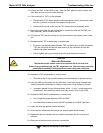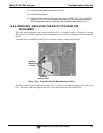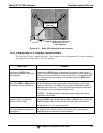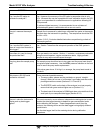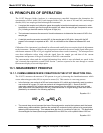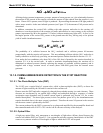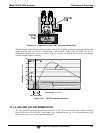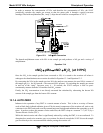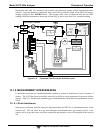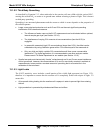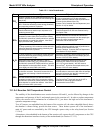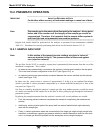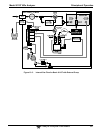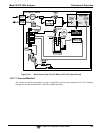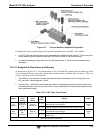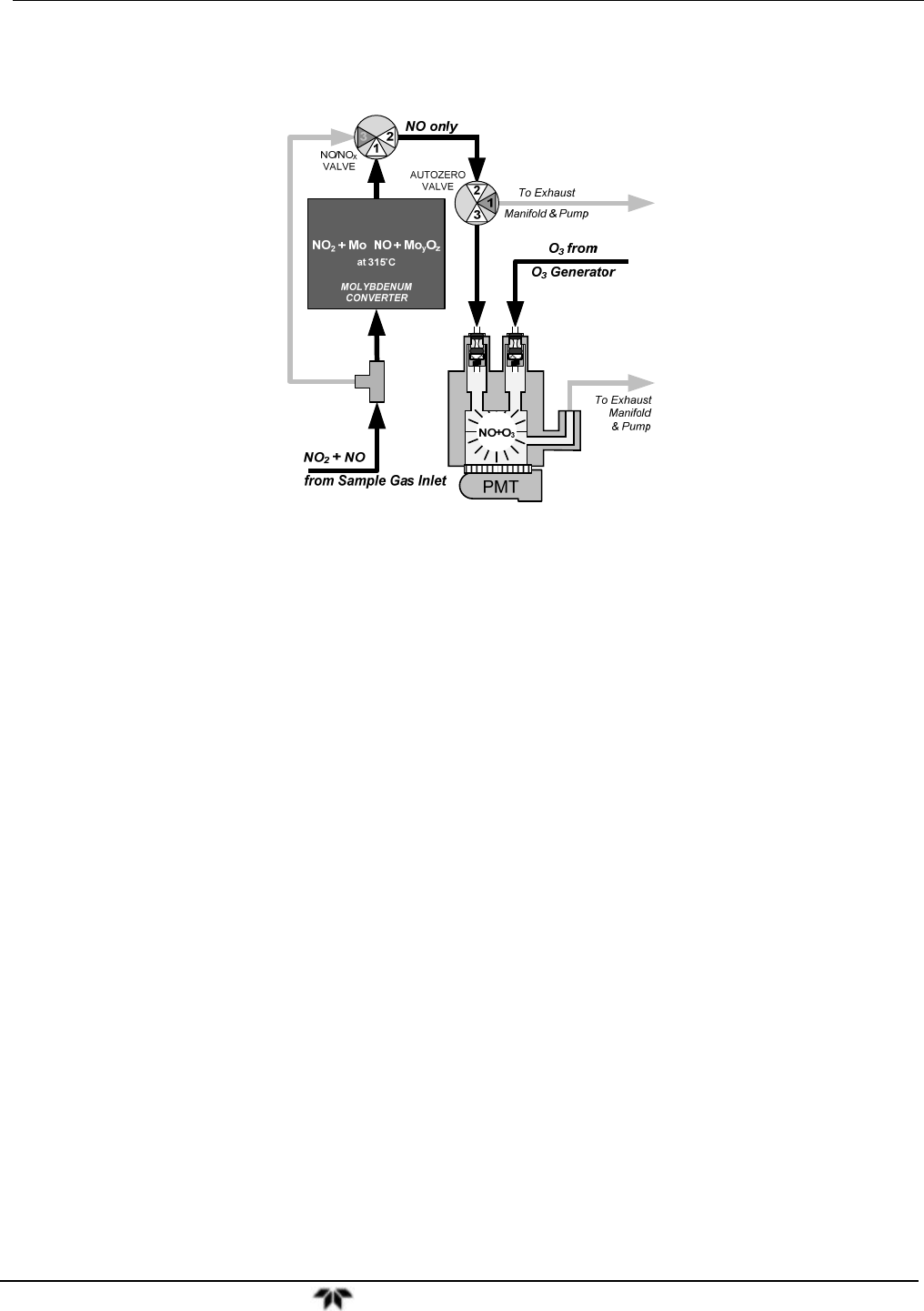
Model 9110T NOx Analyzer Principles of Operation
Teledyne Analytical Instruments 322
In order to measure the concentration of NO
2
, and therefore the concentration of NO
x
, the 9110T
periodically switches the sample gas stream so that the pump pulls it through a special converter
cartridge filled with molybdenum (Mo, “moly”) chips that are heated to a temperature of 315°C.
NO only
Figure 13-3: NO
2
NO Conversion
The heated molybdenum reacts with NO
2
in the sample gas and produces a NO gas and a variety of
molybdenum.
Equation 13-4
)315(
2
CatOMxNOyMoxNO
zy
Once the NO
2
in the sample gas has been converted to NO, it is routed to the reaction cell where it
undergoes the chemiluminescence reaction described in Equation 13-1 and Equation 13-2.
By converting the NO
2
in the sample gas into NO, the analyzer can measure the total NO
X
) content of
the sample gas (i.e. the NO present + the converted NO
2
present). By switching the sample gas stream
in and out of the “moly” converter every 6 - 10 seconds, the 9110T analyzer is able to quasi-
continuously measure both the NO and the total NO
X
content.
Finally, the NO
2
concentration is not directly measured but calculated by subtracting the known NO
content of the sample gas from the known NO
X
content.
13.1.4. AUTO ZERO
Inherent in the operation of any PMT is a certain amount of noise. This is due to a variety of factors
such as black body infrared radiation given off by the metal components of the reaction cell, unit to unit
variations in the PMT units and even the constant universal background radiation that surrounds us at all
times. In order to reduce this amount of noise and offset, the PMT is kept at a constant 7° C (45° F) by a
Thermo-Electric Cooler (TEC).
While this intrinsic noise and offset is significantly reduced by cooling the PMT, it is not eradicated. To
determine how much noise remains, once every minute for about 8 seconds the 9110T diverts the sample
gas flow directly to the vacuum manifold without passing the reaction cell.



